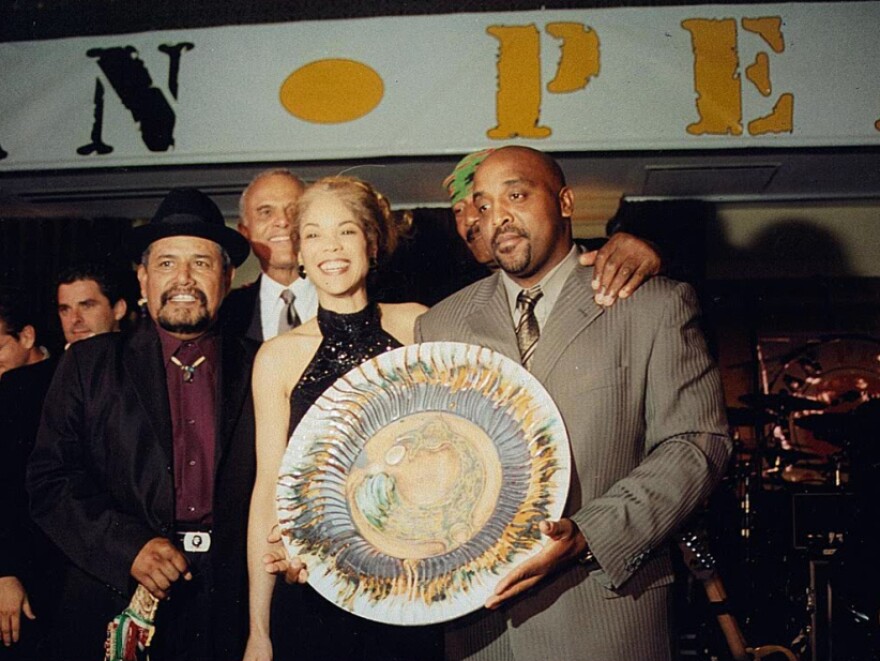For years, civil rights attorney Constance Rice says, she would wake up every morning trying to figure out new ways to sue the Los Angeles Police Department into policing minority communities more fairly.
In her memoir, Power Concedes Nothing, Rice details how she went from the LAPD's antagonist to reformer, convincing police that they needed to court the backing and support of the city's African-American and Latino populations.
Relations between the attorney and the police force have warmed over the years: The LAPD even hosted Rice's book release party.
"It's pretty fitting that we have Connie's initial book-signing and presentation here. This is, in part, the house that Connie built," LAPD Chief Charlie Beck says.
When Rice began working at the Los Angeles office of the NAACP Legal Defense Fund in 1991, she encountered the old LAPD, the lean, mean paramilitary machine made famous by Chief William Parker in the 1950s.
"For many years, the LAPD relationship with the African-American community was that of an occupation force: Us against them," says John Mack, former CEO of the Los Angeles Urban League and current vice president of the Police Commission. Mack worked closely with Rice on scores of abuse-of-power cases, challenging arbitrary stops and excessive force — a common occurrence in some parts of town.
In 1992, riots erupted in L.A. when a mostly white jury acquitted four policemen of beating black motorist Rodney King. Rice says the riots starkly illustrated the cost of having a police department that was constantly at war with its black and brown neighborhoods.
Rice had been groomed for this work since childhood. Her cousin, former Secretary of State Condoleezza Rice, remembers the ethic both of them were raised with: "We were just expected to succeed, and expected to work hard, and I remember my parents had a saying, 'You had to be twice as good' — and it was just said as a matter of fact, not debate."
Rice's drive and discipline paid off as she and Beck worked together to change how L.A. was policed. Beck — and his predecessor William Bratton — gradually replaced all the old paramilitary hard-liners with new commanders who had a more expansive view of what policing entailed. He credits Rice with persuading key gang leaders to consider that the new method might save the youngest people in their communities and keep their mothers, wives and girlfriends safe.

The detente is not perfect — there are still police-community confrontations. But there seems to be more willingness to listen on both sides.
"To see the partnership with a woman like Connie Rice, with a parking space in our garage, and a person who considers the top staff of the department her partners — we've come a long, long way," says Stephen Downings, a retired deputy chief.
Beck agrees and admits, "When I met Connie 20 years ago, I thought of her as an adversary to the department, as someone who did not have my best interests at heart. Now she is a partner, an adviser and a friend. And the conscience of the city."
Copyright 2023 NPR. To see more, visit https://www.npr.org.




